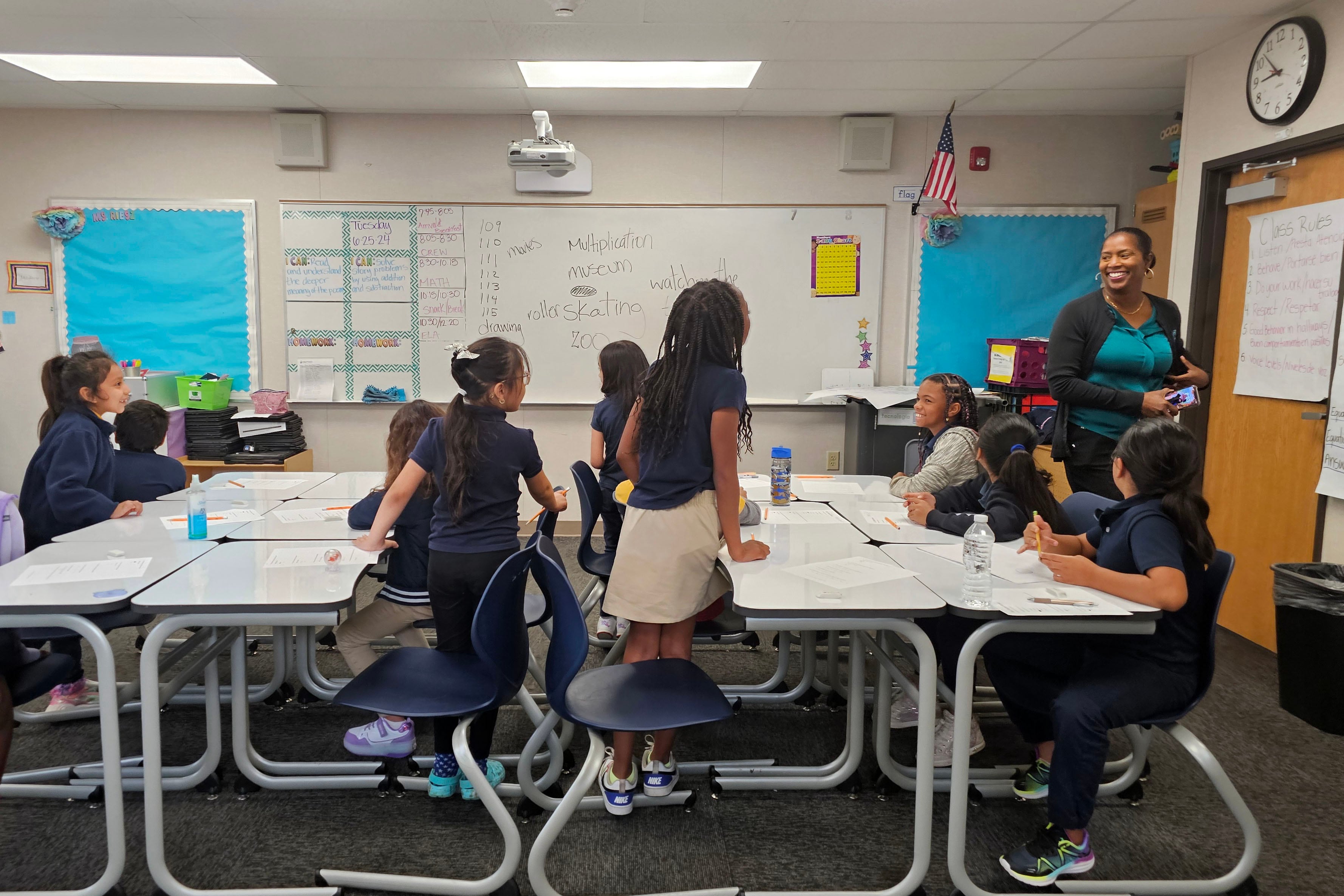Sign up for Chalkbeat Indiana’s free daily newsletter to keep up with Indianapolis Public Schools, Marion County’s township districts, and statewide education news.
Indianapolis Public Schools is now accepting letters of interest from potential partners as part of a streamlined application process for in-boundary schools to join the Innovation Network.
The updated process is the result of a charter school collaboration resolution passed by the school board in June that affirmed the district’s commitment to collaborating with schools of all types, including charters. The district hopes that by making it easier for in-boundary schools to become Innovation partners, the new process will increase educational opportunities and allow traditional IPS and Innovation schools to learn from each other.
The finalized process was presented to the school board by Brian Dickey, the IPS executive director of portfolio strategy, on Thursday during its regular action meeting.
“Hopefully this is an opportunity for district-managed and Innovation Network schools to come together and collaborate for greater school-level and educator-level problem solving,” Dickey said at the board’s summer retreat on Aug. 20.
Innovation Network schools have autonomy over their operations but use school buildings within IPS boundaries and can access some district services. The district can claim Innovation students for their enrollment and academic performance data. Not all Innovation schools are charter schools, although many are.
The window for submitting letters of interest is open through Sept. 30. IPS is asking potential partners for the 2025-26 school year to explain the best practices they have in place for students, and to show evidence for how their school model is successful.
At their retreat, school board commissioners agreed to look for mental health support for students and cultural responsiveness in the classroom when considering potential partners.
IPS Superintendent Aleesia Johnson noted that the district must take into account the school’s socioeconomic factors, as well as how long it has been open, since the district asks for evidence-based practices in the application.
“I would not suggest a level of rigidity that does not give us the opportunity to consider the context of who’s being served in schools,” Johnson said at the board retreat.
In November, schools with promising letters of interest will be asked to submit a formal application, due in December. From January to June, the school board and IPS administrators will interview applicants, and a proposed agreement will be presented to the board.
Before the updated process, schools had five pathways to join the Innovation Network. Two of those options — Jumpstart, for existing underperforming IPS schools, and Restart, for existing underperforming non-IPS schools — will no longer be available. The new application offers three remaining pathways: a new school can join the network, an existing charter can join, or there can be a conversion.
The new school designation is meant for schools that have not existed before that plan to open within the district as part of the Innovation Network.
Existing charters already operate in the district’s boundaries but wish to collaborate with IPS via an Innovation agreement.
The conversion option refers to a high-performing IPS school that seeks greater autonomy by becoming an Innovation school.
More information about applying, including the letters of interest template, can be found here.
Contact Chalkbeat Indiana at in.tips@chalkbeat.org.






